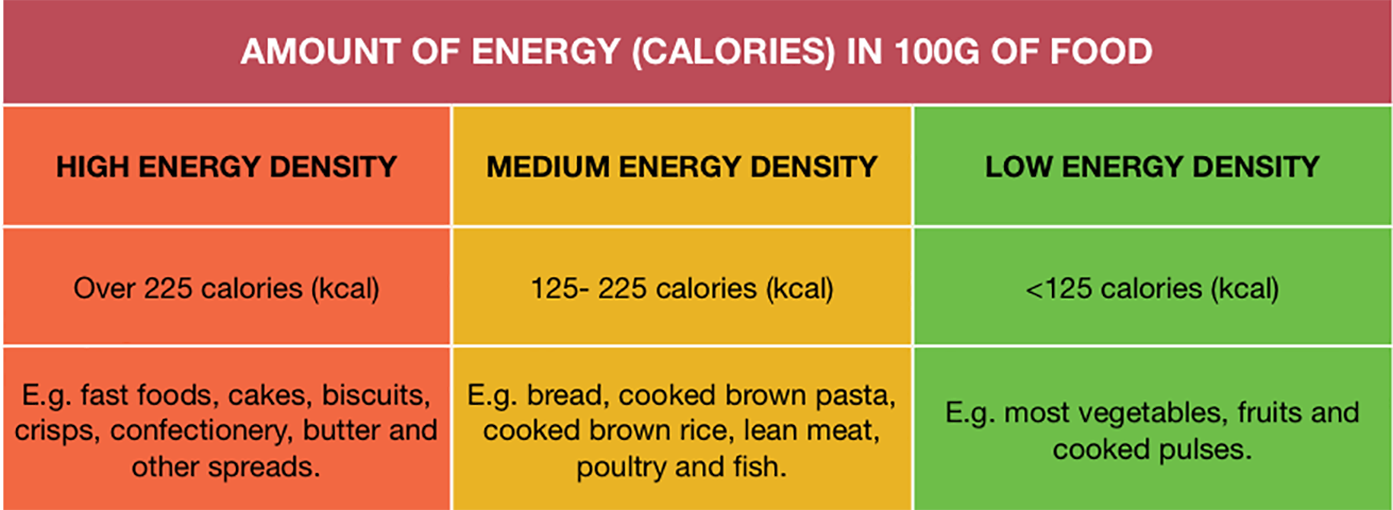Limit consumption of ‘fast foods’ and other processed foods high in fat, starches or sugars.
LIMITING THESE FOODS HELPS CONTROL CALORIE INTAKE AND MAINTAIN A HEALTHY WEIGHT.
There is strong evidence that diets containing greater amounts of ‘fast foods’ and other processed foods that are high in fat, starches or sugars are a cause of excess weight gain and as a result overweight and obesity. These foods are generally highly palatable, high in energy, cheap, easy to access and store. As a result these foods have been shown to contribute to excess intake of energy/calories and lead to weight gain. There is strong evidence that greater body fatness is a cause of many cancers.
WHAT IS ENERGY DENSE?
Energy density measures the amount of energy (or calories) a food supplies in a given weight of the food (usually 100g). If a food has a high energy density it means it provides a large amount of calories in a small volume of the food e.g. confectionary, fast food. On the other hand, a food that is low in energy density provides a small amount of calories in a large amount of the food e.g. fruit, vegetables.
HOW WILL I KNOW WHETHER A FOOD IS ENERGY DENSE?
As a general rule, processed foods that contain lots of fat/sugar and little fibre tend to have a high energy density, whereas fresh foods that are not processed tend to have a lower energy density. There are some whole foods that are naturally energy dense (e.g. nuts, seeds), however when these are consumed in moderation as part of a healthy balanced diet, they have not been associated with weight gain or an increased risk of cancer, and are often a valuable source of nutrients.
Most foods display nutritional information on their labels and usually list how many calories (kcal) the food contains per 100g of the food. The following categorisation will then allow you to check whether the foods have a low, moderate or high energy density.

HOW DO ENERGY DENSE FOODS AFFECT CANCER RISK?
Foods and diets that have a high energy density cause weight gain and promote overweight and obesity. The primary goal of this recommendation is to help us to achieve the 1st recommendation of maintaining a healthy body weight, because overweight and obesity are strong risk factors for cancer.
Aside from weight gain, energy density is also an important measure of the quality of the diet. Foods that are high in energy density generally have a poor nutritional quality. By avoiding energy dense foods, the diet will naturally be low in processed foods and high in plant-based foods, two cornerstones of cancer prevention and healthy eating diets.
WHAT IS CONSIDERED A ‘SUGARY DRINK’ AND WHY SHOULD WE AVOID THEM?
Sugary drinks refer to drinks with added sugar. Sugary drinks provide a lot of calories but do not provide any nutritional value and do not make us feel full. In this way they lead to overconsumption of calories and lead to weight gain.









 Contact
Contact